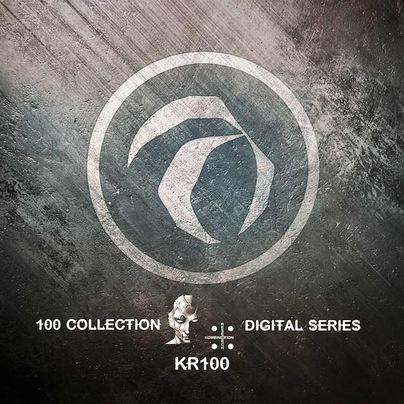Ogden Nash once wrote that middle age is when everyone new you meet reminds you of someone else. I guess the same is true of music – even techno. When I put on this 20-year retrospective of the Advent’s own record label, the first thing I hear is 1998’s ‘P. Tek’. The warbling leadline, the kickdrum pulse that steps up as the TR909’s sleigh-bell ride cymbal drops in, the mid-range sweeps. None of these sounds are unfamiliar to anyone who anyone who was still on the dancefloor at 4am in that decade, but few people made it sound better than the Advent. And it still works. Such is the paradox of techno: nothing dates as fast as futurism, but few things are as timeless as minimalism. It’s always ready to accept the gifts a new generation may bring.
Back in the mid 90s when I was writing a lot about techno, I always used to relish the opportunity to interview people in their studios. Like a black hoodie-clad Loyd Grossman, I thought it gave me an extra insight into where the music was coming from. Drum Club/Projex supremo Charlie Hall’s space was an acid temple, filled by the Kabbalah of classic Roland numerals, and itinerant legendary Chicago DJs making use of them. The mysterious duo of Holy Ghost, who had switched from arty hardcore 12”s to deep techno concept albums about mind control, had little except an ancient 16-track desk and the somewhat limited Akai S-900 sampler which left me baffled as to how they constructed the monstrous bassline of ‘Zombie Assassin’.
In a way, the Advent’s studio was almost as much of a mystery. It groaned with keyboards, and state of the art kit, but most of their tracks sounded like a series of stripped down rhythms, tailored to the varying whims of a DJ or a dancefloor. But their work was careful, clean and precise, hitting the target consistently. And work was the operative word, it looked like a place you clocked in, from 10 till 6. It was no Bandulu-style den, designed for smoky late night sessions. The Advent seemed like techno distillers, taking a rack-full of sonic possibility, and reducing it to its optimal tough funky essence. A track like ‘Inn Search ‘ is on one level, little more than a drum machine work out. But on closer listening its depth of field is incredible, doing for the 909 what Hardfloor’s ‘Aceperience’ did for the TB-303.
In person they were lovely people, the garrulous theorising Colin (since departed), and the more taciturn Cisco who was the nearest thing British techno had to a pin-up, among the Vitamin D-deficient skinny boys who made up most of its yeomanry. But at the time I found their tracks more difficult to warm to. Maybe it was because they had actually fulfilled the ideal of an electronic Esperanto removed from time and place. In most techno, the fun was in the failure. Detroit’s globetrotting superstars made syncopated elegies for their declining hometown; Basic Channel fused US techno and Jamaican dub ‘through a million shades of lustrous grey’ (Simon Reynolds), and as such sounded as Berlin as a Kurt Weill cabaret.
Meanwhile in the UK, Surgeon’s gritty ‘Muggerscum Out’ (recorded in Napalm Death’s drummer’s basement) located Anthony Child firmly within the same grim Midlands as Black Sabbath – a worm in the rose to huggy rave culture the same way Ozzy and Iommi had been to the original flower children. Even seemingly impenetrable Aphex Twin tracks like ‘Quoth’ and ‘Isoprophlex’ rooted themselves in a bedrock of Druidic monoliths and unexplained Geiger counter readings that was as English as the Kinks opining on dolly birds or garden cities.
But the Advent were different, although there’s a nod to sound-system London in the glorious ‘Bad Boy’ – in the distant menace of its opening to the unforgettable stabbing riff that morphs into a dubby shimmer. It’s the closest thing they have to an anthem and kudos is due to them not building a career on merely producing variations of it, but I always wanted more of this from them: a statement in its own right rather than a precision tool, honed to slip smoothly into the mix.
It seems churlish to say, but Joey Beltram’s ‘Fractals’ is for me the standout track – characteristic square wave bass, uncharacteristically splashy beats, and a sinister echoing leadline wending its way through the mix like a wraith prowling an empty Gotham. The Advent come closest to catching the same mood with the electro of ‘Elektra Fix’ and ‘Bass High’. Here the high production values come into their own with polished takes on the raw sounds proffered by the likes of Anthony Rother and Drexciya.
But there are very few dips in quality here (Murat’s lo-fi house on ‘Missing’ is the only one that grates). KR100 may score low for art, but for state-of-the-art techno to integrate into work, rest and play, it sets a formidable standard.


